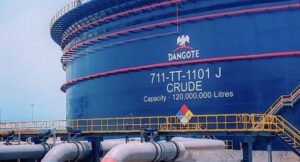
Nigeria receives only 4% of investment flows into Africa’s oil, gas before PIA — Sylva
…Lost $50bn worth of investment
By Uthman Salami
The Minister of state for Petroleum Resources, Chief Timipre Sylva has said that Nigeria received only 4 per cent of investment inflow into Africa oil and gas before the Petroleum Industry Act ( PIA) was signed and lost over $50 billion worth of investment over delay.
Sylva stated this in a keynote address during the 5th edition of the Nigerian International Energy Summit (NIES) holding in Abuja.
According to him, “A new dawn was ushered into Nigeria’s oil and gas industry the day President Muhammadu Buhari, GCFR, signed the Petroleum Industry Bill (PIB) into law making it the historic Petroleum Industry Act (PIA).
“It was a landmark achievement and victory for all Nigerians. Before this landmark Act, Nigeria’s petroleum industry was governed by the Petroleum Act of 1969 and other obsolete legislations.”
Commending Muhammadu Buhari over the assent to the bill, he said “Mr. President never concealed his desire towards creating a more conducive environment for growth of the sector and addressing legitimate grievances of communities most impacted by extractive industries.
“Let us not forget that the PIB was introduced over two decades ago.
“Despite the controversies and the difficulties, the Buhari Administration believed that the concept, objectives and long-term goals of the bill remained impeccable as to warrant its efforts to rally the legislature from different political and ethnic divide for its passage.”
He bemoaned that, “While the country was waiting for the PIA, Nigeria’s oil and gas industry lost about $50 billion worth of investments.
“In fact, between 2015 and 2019, KPMG states that, “Only 4 per cent of the $70 billion investment inflows into Africa’s oil and gas industry came to Nigeria even though the country is the continent’s biggest producer and the largest reserves.”
“It is no brainer, therefore, to see that the absence of the legal, governance, regulatory and fiscal framework for the industry contributed to the huge loss Nigeria has witnessed.
“However, with the assent of the PIA, President Buhari has assured multinational oil companies and global oil industry investment community of adequate protection for their business interest in Nigeria.
“The nation’s energy industry is no longer rudderless. The PIA makes Nigeria competitive relative to other oil and gas producing countries, especially among its African peers.
“While the role of the two new dual regulators will come under scrutiny, the issue of the host communities will continue to elicit frayed nerves and emotions.
“It is commendable that the PIA addressed the relationship with host communities by creating the Host Community Development Trust Fund (HCDTF) to foster sustainable prosperity, provide direct social and economic benefits from petroleum to host communities, and enhance peaceful and harmonious coexistence between licensees or lessees and host communities. It may not be perfect yet, but it is much better than where we are coming from.



